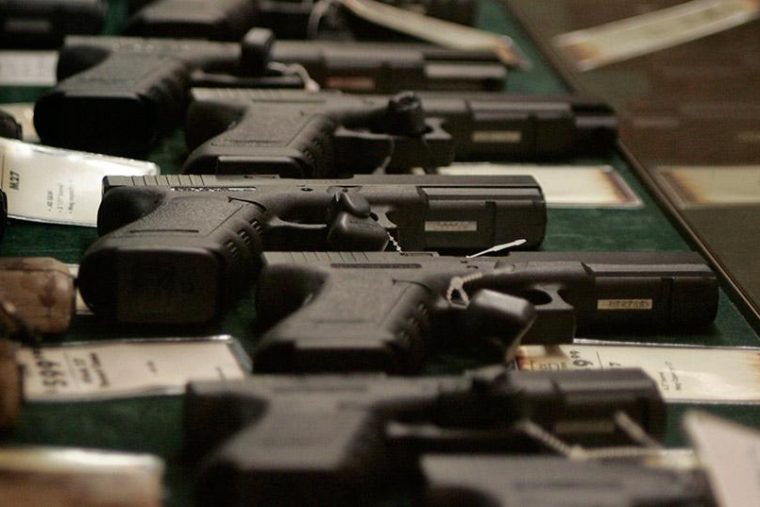A friend of mine treated himself to a new revolver for Hannukah, a Smith & Wesson .44 Magnum. He and I took it to the range a few days ago to break it in. For the uninitiated, the S&W .44 Magnum is the gun Dirty Harry describes as the “the most powerful handgun in the world; would blow your head clean off.” It’s unbelievable fun to shoot, and, as you might guess, very, very loud.
We were shooting at an indoor range, in Connecticut, and the noise led to a discussion of pistol silencers. My friend mentioned that in a couple of European countries where silencers are legal, it’s considered rude not to use one when you’re firing around other people. This makes sense; I’ve shot a few silenced guns over the years, and — aurally speaking — they are much, much more pleasant than their un-silenced counterparts.
Thanks to movies — and the name “silencers” — people tend to think that silencers make guns silent. They don’t. What they do is turn something so loud that it damages your ears into something so loud that it merely hurts them. When you shoot a silenced gun, unless it’s a very low-caliber gun or its silencer is unusually large and effective, it’s still prudent to wear hearing protection.
As it turns out, in Connecticut, it’s sort-of impossible to get a pistol silencer. In 1994, congress passed the Assault Weapons Ban. It was an asinine, ineffectual law that banned certain aesthetic features of guns, such as pistol grips, and certain features of convenience, such as adjustable stocks. It had no impact on the lethality of guns; a gun with a pistol grip can’t kill you any deader than a gun without one, or than a car. All the Assault Weapons Ban did was cause a nuisance.
After Congress allowed the law to expire in 2004, Connecticut kept a version of it on its own books, as did many liberal states. Among the things that it makes illegal — it’s been expanded over the years — are threaded barrels, which you need in order attach a silencer to a gun. So while silencers are technically legal, you can’t buy a gun to which a silencer can be attached, unless it is a “pre-ban” gun and hasn’t left Connecticut, in which case it’s grandfathered in: A pistol with a threaded barrel that was legal in Connecticut before the ban is still legal today.



